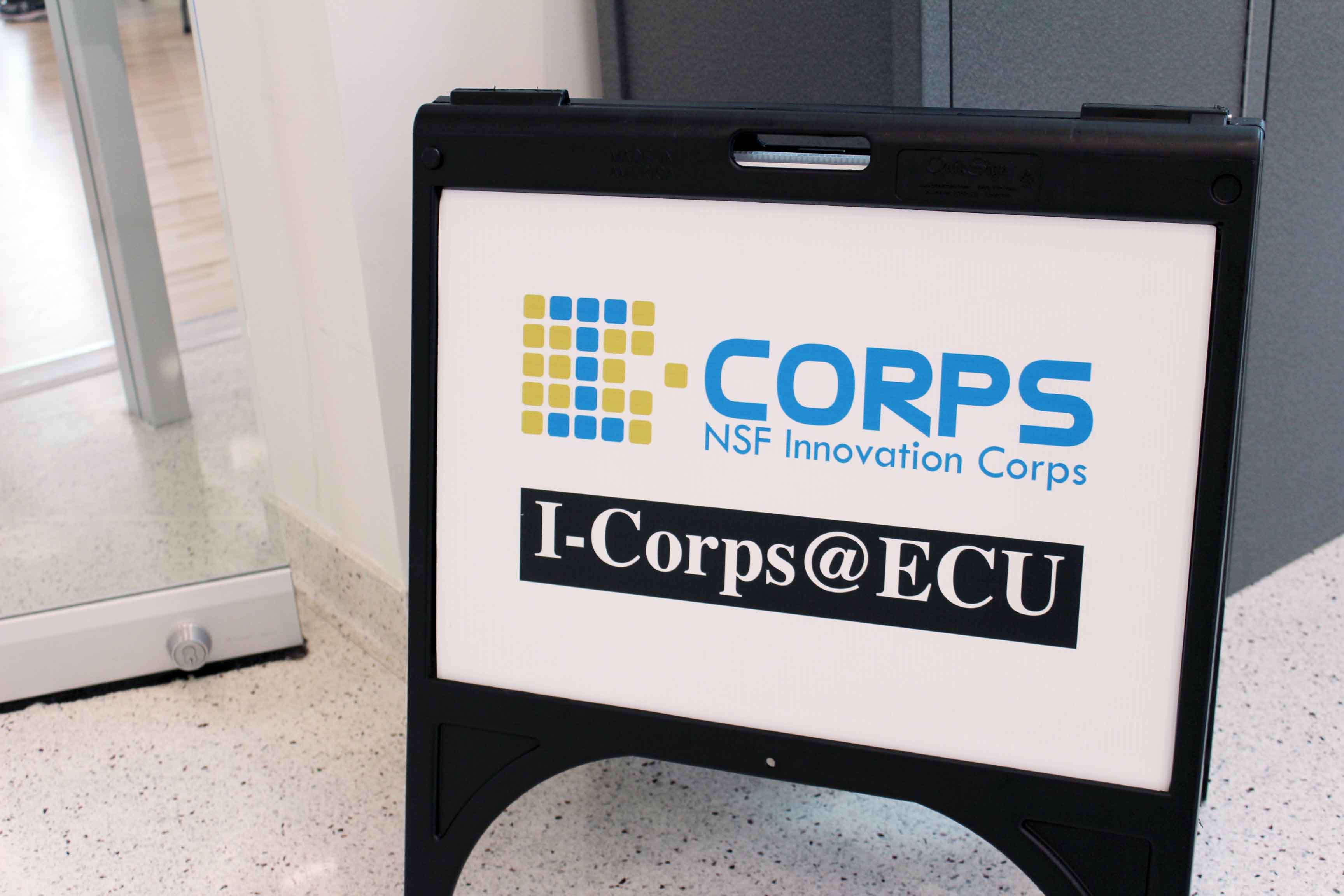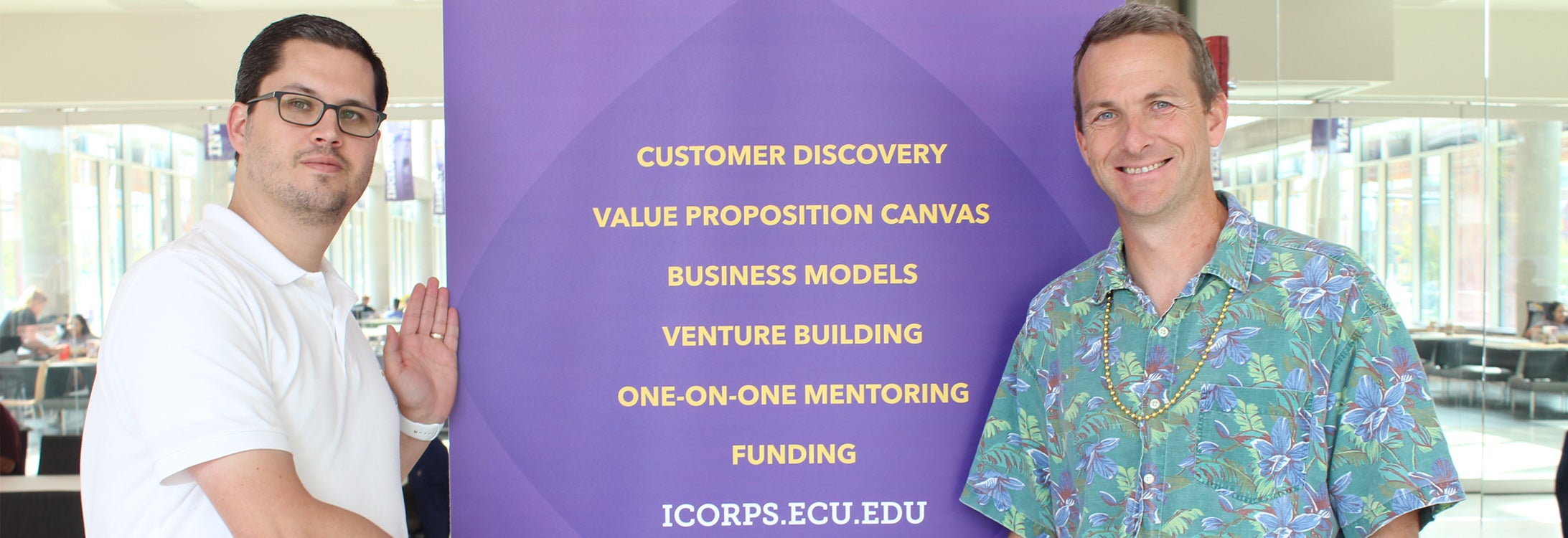ECU I-Corps Turns Business Ideas Into Reality
Taking an idea and putting it into action can be a challenge. I-Corps, a grant-based program funded by the National Science Foundation equips scientists, entrepreneurs and innovators with the knowledge and skills necessary to develop their ideas into impact.
East Carolina University is an I-Corps training site and recently wrapped up its third program this fall.
The program uses established business methods in lean product launch, customer discovery and business model innovation to direct ECU students and faculty in developing and commercializing their ideas and inventions. These ideas range from medical research, scientific technology and new business plans.

ECU will host a spring I-Corps program beginning with a kickoff bootcamp on Jan. 31, 2020.
Marti Van Scott, director of licensing and commercialization and leader of I-Corps@ECU, said the program helps participants determine whether there is a potential market for their product. This “go or no-go” decision-making process is referred to as the lean launch pad method and is crucial to the I-Corps process, according to Van Scott.
“The NSF wants to help people assess their ideas to see if they can become more than just traditional research,” Van Scott said.
According to Van Scott, a total of eight teams completed the program this year. The program kicked off with an extensive boot camp that covered human-centered design thinking, guided participants through conducting interviews, and provided insight on the business model canvas. Following bootcamp, teams participated in four weekly sessions, read assigned articles and journals, and conducted 30 interviews with potential consumers that tested the validity of their product or idea.
According to Van Scott, ECU is one of four schools in North Carolina that received an I-Corps site grant from the NSF. She said this grant will serve up to five years of I-Corps training.
“Part of it is determining if an invention is a ‘must have’ or ‘nice to have’ invention,” she said. “There is a big difference.”
Sophomore biology major Zachary Chichester and sophomore biochemistry major Arvind Rajam joined I-Corps to develop their business idea “CPR on Demand.” The idea stemmed from the realization that not enough people have adequate knowledge of how to properly perform CPR. The duo developed a plan to create an easy-to-use app which provides simple, preventative instructions on administering CPR in case of emergency.
Two of the biggest issues with CPR certification courses, according to Chichester and Rajam, are that they are expensive and that instructions are often forgotten. They said they hope to eliminate these issues by teaching compression-based CPR through a free app which can be used on mobile technology. The ultimate goal, they said, is to decrease the number of cardiac related deaths.
“Our goal is to teach you enough – not too much – but enough to remember long term,” Rajam said.
To promote their app they said they hope to incorporate social media sites and trends that are popular amongst younger demographics.
Another team which successfully completed I-Corps through ECU this fall was the Self Reported on Water Boat Operator Safety (SOBOS) team. SOBOS team members includes ECU faculty members Ernest Marshburn and Mark Hills, research associate Rob Howard, and undergraduate Griffin Steinbaker.
Recreational boating is a leading cause of transportation accidents, partly due to the fact that safety technology is expensive. SOBOS provides free, mobile boating safety software that uses situational awareness technology that aims to reduce the number of accidents a year.
Through this program, Marshburn has been able to connect with several industry partners. He currently has completed over 175 customer interviews and plans to release the second version of SOBOS over the next year.
ECU will host a spring I-Corps program beginning with a kickoff bootcamp on Jan. 31, 2020. The program welcomes ECU faculty, staff and students and anyone interested in entrepreneurship. Learn more and register online at I-Corps@ECU.
